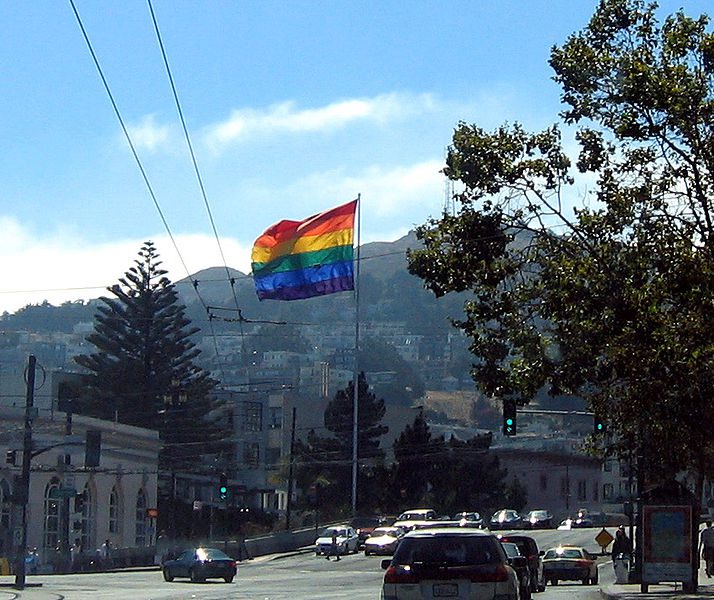
(Wikimedia Commons)
I understand what’s going on. Municipal leaders across the country are pretty much obliged to name streets after Martin Luther King Jr., Cesar Chavez, and, now, Harvey Milk.
Why?
Because many genuinely revere them, of course.
But also because, given the way liberalism has evolved since the days of Lyndon Johnson, the Great Society, and George McGovern, failure to toe the progressive line on matters involving race, gender, and sexuality is a sure demonstration of moral depravity to large sectors of elite opinion. And it draws the kind of attention from elite media that city leaders, tourist bureaus, chambers of commerce, and earnest local boosters really, really, really don’t want. (See this and this.)
Anybody who votes against renaming a street for Martin Luther King, Cesar Chavez, or Harvey Milk is absolutely certain to be declared a bigot who hates blacks, Latinos, people of color generally, and homosexuals. Hate, hate, hate. Proposition H8. And so forth.
Now, truth be told, I don’t really mind having a street named after Martin Luther King. He was a genuinely heroic and truly national figure, and his assassination was a vicious crime. And racial bigotry is a serious moral failing that he helped us to face. It seems just a tad rote and obligatory to me, frankly, since virtually every city of any size now has a Martin Luther King Boulevard, but I’m fine with it. (I wonder how many cities have George Washington Boulevards or Abraham Lincoln Boulevards. Does Salt Lake City?)
I’m a bit less on board with naming a street in Salt Lake City, Utah, after Cesar Chavez. Mr. Chavez was a California labor organizer, and he was controversial even back when he was alive and I was living in the state. His wasn’t such clear moral issue, but a matter of economics and public policy on which decent people could disagree. Not everybody supported his boycotts of California agricultural products, and I guess I missed the memo announcing his transformation into a secular saint to whom every substantial city must dedicate a major street. But whatever. No harm, really, and it’s done.
As for Harvey Milk? You may recall that he was a member of the San Francisco Board of Supervisors — the first openly gay elected public official in California — who was assassinated (along with Mayor George Moscone) in November 1978, after holding office for just eleven months. It’s natural and, in fact, it’s right and proper that the city of San Francisco now has a George Moscone Center, for instance, and a Harvey Milk Plaza. Murdered public servants should be remembered and honored, just as their murderers should be abhorred and disdained.
I don’t strenuously object to renaming a Salt Lake City street for Mr. Milk, but I do find it rather odd.
Is there a street named after George Moscone? For that matter, how many Utah governors remain streetless? How many Utah senators and congressmen? How many Salt Lake City mayors? How many prominent Utah artists, writers, pioneers, inventors, scientists, and public officials? Is there a Henry Eyring Street? A Deedee Corradini Street? I honestly don’t know. Has any boulevard been named after Avard Fairbanks?
I suppose it’s part of the tribute that a conservative state must pay to icons of the political and cultural Left. It might plausibly be seen as an attempt to escape demonization. I have no real hope or expectation that progressive-leaning outsiders will ever give up regarding the dominant religious and political blocs here as haters and troglodytes, but the situation would likely be even worse if we failed to genuflect where genuflection is required, however briefly.












